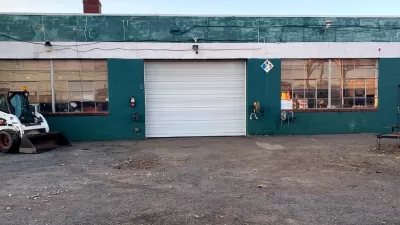Both the presidential election and numerous state and local ballot measures will determine the future of environmental policy in the United States.

Four more years of the Trump administration or a win by former Vice President Jose Biden would have drastically different consequences for the nation's "bedrock environmental law," the National Environmental Protection Act (NEPA), according to an article by Jessica Kutz.
For insight into the environmental policy consequences of Trump's first four years in office, Kutz interviews Dinah Bear, an environmental lawyer and consultant based in Tucson, Arizona. Bear expresses concerns about the narrowed scope and application of NEPA as a result of changes made during the Trump administration.
"The changes fundamentally mischaracterize the purpose of NEPA," says Bear. "The original regulations pointed out that the purpose of NEPA was essentially to try and implement the country’s environmental policies. Now, the new regulations say that agencies have satisfied NEPA if they’ve considered the relevant environmental information and the public has been informed regarding the decision."
A win by Biden would allow the new administration to restore and rejuvenate NEPA, according to the interview.
For a broader review of the many environmental laws that will be decided in local and state elections today, see also an article by Heater Hansman, which identifies ballot measures and other races "that will have wide-ranging impact on wildlife, water rights, renewable resources, and more."
Hansman previews elections to watch in Alaska, Arizona, Colorado, Florida, Michigan, Montana, Nevada, and Washington—varying from ballot propositions to ballot questions to races for Congress, state legislatures, and governor's offices.
FULL STORY: Trump gutted NEPA regulations, but a Biden presidency could restore them

Maui's Vacation Rental Debate Turns Ugly
Verbal attacks, misinformation campaigns and fistfights plague a high-stakes debate to convert thousands of vacation rentals into long-term housing.

Planetizen Federal Action Tracker
A weekly monitor of how Trump’s orders and actions are impacting planners and planning in America.

In Urban Planning, AI Prompting Could be the New Design Thinking
Creativity has long been key to great urban design. What if we see AI as our new creative partner?

Pedestrian Deaths Drop, Remain Twice as High as in 2009
Fatalities declined by 4 percent in 2024, but the U.S. is still nowhere close to ‘Vision Zero.’

King County Supportive Housing Program Offers Hope for Unhoused Residents
The county is taking a ‘Housing First’ approach that prioritizes getting people into housing, then offering wraparound supportive services.

Researchers Use AI to Get Clearer Picture of US Housing
Analysts are using artificial intelligence to supercharge their research by allowing them to comb through data faster. Though these AI tools can be error prone, they save time and housing researchers are optimistic about the future.
Urban Design for Planners 1: Software Tools
This six-course series explores essential urban design concepts using open source software and equips planners with the tools they need to participate fully in the urban design process.
Planning for Universal Design
Learn the tools for implementing Universal Design in planning regulations.
planning NEXT
Appalachian Highlands Housing Partners
Mpact (founded as Rail~Volution)
City of Camden Redevelopment Agency
City of Astoria
City of Portland
City of Laramie





























